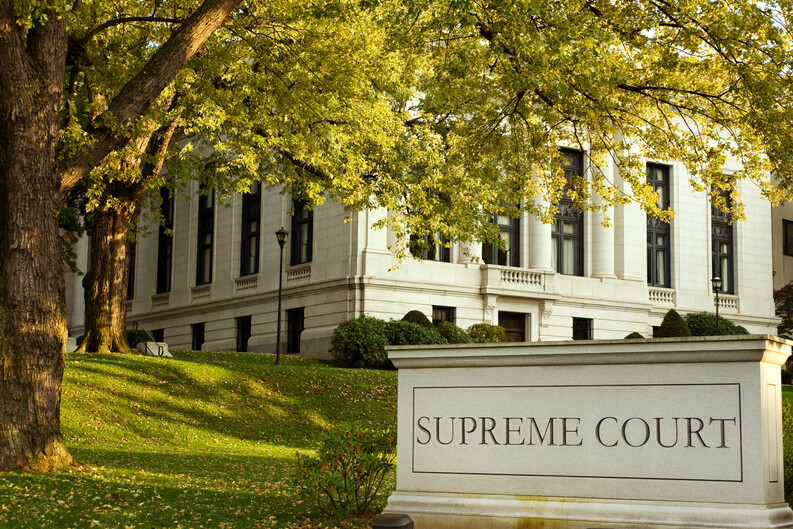Connecticut Supreme Court Sides with MFIA Clinic in Police Records Case

The Connecticut Supreme Court has ruled in favor of the Media Freedom and Information Access (MFIA) Clinic in its fight for police records from a decade-old homicide case. The ruling supports MFIA’s position that an exception to the state’s open records law for certain activities in ongoing police investigations is narrow. The matter will now be returned to the trial court to apply this standard, which makes it harder for police to withhold files on cold cases.
The clinic is calling the ruling last month a win for government accountability.
“This decision reaffirms the balance between law enforcement's need for privacy to effectively conduct investigations and the public's right to government oversight,” said Stephanie Rice ’23, a former MFIA Clinic student who argued the case.
The files in question concern the murder of Barbara Hamburg, who was killed in her front yard in the town of Madison in 2010. Despite a police investigation, no one was ever charged and the case eventually went cold. MFIA’s client, filmmaker Anike Niemeyer, was working on a documentary miniseries about the murder with the victim’s son, Madison Hamburg. Niemeyer sought access to the Madison Police Department’s file on the case under Connecticut’s open records law.
In response to the records request, the police department initially refused to release any files, citing a Connecticut Freedom of Information Act (FOIA) exception that allows agencies to withhold “information to be used in a prospective law enforcement action if prejudicial to such action.” Their investigation, they said, was still active.
MFIA students argued that the FOIA exception was not so broad. They argued that the exception required police to show both some evidence that an arrest or prosecution was foreseeable and how the release of particular records would prejudice that proceeding. Both the Freedom of Information Commission and the Superior Court for the District of New Britain agreed with this reading of the law during the initial phases of the litigation. According to MFIA, this was a cold case, with no such action on the horizon. Both courts ruled in favor of MFIA’s client, ordering the release of all the requested records.
Last month’s Supreme Court ruling upheld the lower court’s decision. Clearing up an ambiguity in the statute, the court adopted MFIA’s position that “prospective law enforcement action” needed for the exception to apply requires a law enforcement agency to show that there is “a reasonable possibility” of a future action, “meaning that the occurrence is more than theoretically possible but not necessarily likely or probable.”
The court rejected state law enforcement authorities' much broader reading. Their reading would have exempted investigative records from disclosure so long as police have a suspect, the investigation remains “open,” and the statute of limitations has not run out. Because there is no statute of limitations for murder, this standard would have effectively allowed the murder investigation files to be permanently withheld from the public.
“As the Supreme Court recognized, it's especially important to permit public access to investigatory records where law enforcement can't demonstrate a reasonable possibility of future action so that the public may exercise meaningful oversight of law enforcement agencies,” Rice said.
Although the court vindicated MFIA’s legal position, it declined to rule on whether this case meets the standard for withholding records. Citing some “clearly erroneous factual findings” by the FOI Commission, the court sent the matter back to the commission for consideration under this standard. The commission will ultimately decide whether MFIA’s client gets access to the requested records.
The Media Freedom and Information Access Clinic at Yale Law School is a law student clinic dedicated to increasing government transparency, defending the essential work of news gatherers, and protecting freedom of expression by providing pro bono legal services, pursuing impact litigation and developing policy initiatives.


